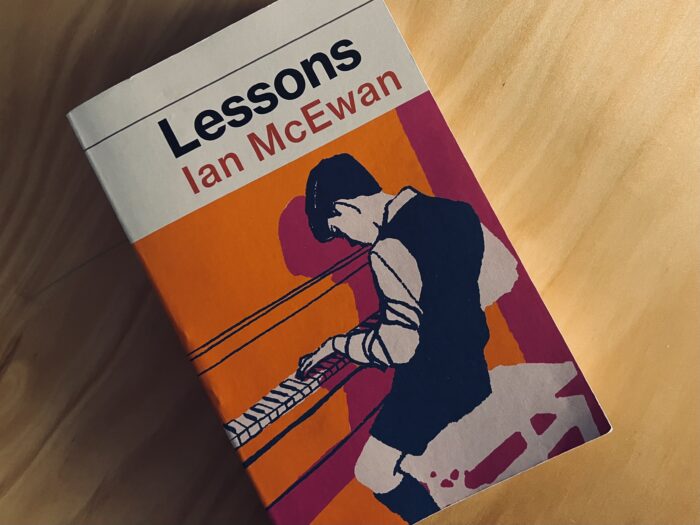
I don’t get to read much fiction these days. As an academic, I read more non-fiction than most people (yet somewhat less than I’d like to read). Unfortunately, I can only read so much in any given day before I hit a point of diminishing returns in regard to my ability to engage with and process that reading. The reading component of my j-o-b tends to monopolize that limited reserve of cognitive capacity. As a result, I usually don’t have the energy for fiction by the time I’m home.
However, I do get some reading done in large spurts on the odd day off from the j-o-b and domestic duties. Usually this sees me enjoying some fiction in between movies. Yesterday was one such day – I was enjoying Ian McEwan’s Lessons in between screenings of Spider-Man: Across the Spiderverse and Un Beau Matin [One Fine Morning].
As I picked up where I left off with Lessons – at the start of Chapter 4 – I encountered an idea that I could relate to:
Books are difficult to tidy. Hard to chuck out. They resist.
While I don’t have an impressive library in terms of size, I do have a library highly curated to my aesthetic and/or intellectual tastes. The volumes on my shelves have become even more precious to me ever since I took up the habit of underlining my favorite passages (as I did the above passage from Lessons) and scribbling my reactions in their margins. I began to feel that my books are a part of me – a feeling which only intensified when my son was born and I realized that one day he would inherit the books and be able to read them ‘with’ me via my marginalia.
Delightfully, the reverberations of this idea – of books resisting being tidied – were almost immediately echoed back to me from another source: Un Beau Matin. In the film, Sandra (played by Léa Seydoux) is confronted with the task of helping move her father – who lives with a neurodegenerative disease – out of his apartment and into a residential care facility.
One component of this task is finding a new home for the many books her father had accumulated as a philosophy professor. Sandra eventually finds one of her father’s former students who is honored to take the books. As Sandra and her young daughter, Linn, help with the organization of the books in the home of that former student, Sandra remarks to Linn that the books are more her father than is the person in residential care. This confuses the young girl, who points out that her grandfather didn’t write the books.
As still images of the books on their new shelves fill the screen, Sandra explains that, while he may not have written the books, he did pick all of them; engage with them; love them. Sandra tells her daughter that the books are like shades of her father’s personality – each a different piece of the puzzle of his personhood.
Perhaps this is why books are so hard to tidy.
Leave a Reply